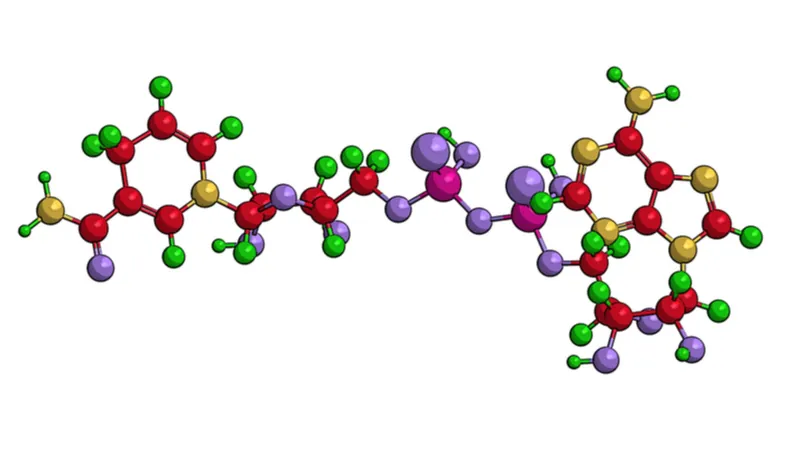Scientists have shown that long-term treatment with a popular NAD+ precursor can raise NAD+ levels in blood and muscle and increase mitochondria content and function [1].
Twin-based design
NAD+ is an important coenzyme that performs multiple functions, including mitochondrial energy production. NAD+ levels decrease with aging, which has been shown to underlie other age-related diseases. Supplementing NAD+ has shown various health benefits in animal models and humans.

Read More
Of all NAD+ precursors, nicotinamide riboside (NR) and nicotinamide mononucleotide (NMN) are considered the most promising and are extensively studied. Previous short-term studies of NR have reported improved physical performance, blood pressure, and several other markers [2,3].
This new clinical trial, coming from Finland and published in Science Advances, utilizes an interesting twin-based design. The researchers recruited 24 pairs of monozygotic twins, 20 of of which had substantially different BMIs (BMI-discordant, a rare occurrence in identical twins), and 4 of which had similar BMIs (BMI-concordant).
The first 20-pair cohort received the same escalating doses of NR for a period of five months. This allowed the researchers to observe the effects of NR supplementation in genetically identical humans with different BMI levels. In the second mini-cohort of BMI-concordant twins, one of the twins was used as a randomized placebo-treated control. The pairs were aged 33 to 41, with an average age of about 40, and men and women were almost equally represented. The daily NR dose was gradually increased from 250 mg to 1000 mg over the first month of the study.
On average, both twins in the BMI-discordant pairs were above the obesity threshold (mean BMI of 27.4 for the leaner twin and 32.8 for the heavier twin). BMI-concordant pairs were obese as well, with a mean BMI of around 32.
More NAD+, more fat
The primary outcome was mitochondrial biogenesis in muscle and white adipose tissue (WAT), but the researchers also analyzed body composition and various metabolic markers. The levels of NAD+ and its metabolites did not differ significantly at baseline in the BMI-discordant pairs. The effect of NR supplementation was significant and largely similar for both twins: the treatment increased whole-blood NAD+ levels 2.3-fold. NR also promoted NAD+ biosynthesis in muscle and WAT.
Interestingly, over the course of the study, both body mass and fat percentage increased significantly (3 kg on average) in BMI-discordant pairs, despite food diaries and questionnaires not showing any changes in food consumption or physical activity. Lean body mass and liver fat contents remained the same. There were no significant changes in adipocyte characteristics, but the expression of PPARγ, an important transcription factor controlling adipogenesis, was upregulated by the treatment. Those changes were largely similar between heavier and leaner twins.
Changes in fat mass coincided with a decrease in insulin sensitivity, although glucose homeostasis markers remained within normal ranges. Markers of cardiovascular health, including blood lipids, blood pressure, and pulse rate, remained unchanged.
Increased mitochondrial biogenesis and stem cell differentiation
On the bright side, NR treatment seemed to significantly improve mitochondrial biogenesis in muscle, according to electronic microscopy and mitochondrial DNA count. The expression of several factors regulating mitochondrial biogenesis, including SIRT1, increased as well. However, most of those changes were absent in WAT.
Since NR had been shown to increase the number and function of satellite cells (muscle stem cells) in mice [4], the researchers were interested to know whether the same holds for humans. Experiments showed reduced stemness and increased differentiation, suggesting that NR treatment activates stem cells and promotes their differentiation and fusion into existing muscle fibers, which would be consistent with unaffected muscle mass.
In BMI-concordant twins, NR’s effects on body composition and metabolic health did not significantly differ from placebo, probably due to the small sample size. In this study, NR supplementation was well tolerated with limited side effects.
Conclusion
According to the researchers, their study “provides the first evidence that long-term NR supplementation increases muscle and WAT NAD+ biosynthesis in humans regardless of BMI” and shows the value of long-term NAD+ supplementation studies. While some of the results are hard to interpret, this study generally suggests that NR treatment can substantially raise NAD+ levels in muscle and boost satellite cell differentiation without increasing muscle mass. However, fat mass increase and reduced insulin sensitivity are notable concerns.
Literature
[1] Lapatto, H. A., Kuusela, M., Heikkinen, A., Muniandy, M., van der Kolk, B. W., Gopalakrishnan, S., … & Pirinen, E. (2023). Nicotinamide riboside improves muscle mitochondrial biogenesis, satellite cell differentiation, and gut microbiota in a twin study. Science Advances, 9(2), eadd5163.
[2] Elhassan, Y. S., Kluckova, K., Fletcher, R. S., Schmidt, M. S., Garten, A., Doig, C. L., … & Lavery, G. G. (2019). Nicotinamide riboside augments the aged human skeletal muscle NAD+ metabolome and induces transcriptomic and anti-inflammatory signatures. Cell reports, 28(7), 1717-1728.
[3] Martens, C. R., Denman, B. A., Mazzo, M. R., Armstrong, M. L., Reisdorph, N., McQueen, M. B., … & Seals, D. R. (2018). Chronic nicotinamide riboside supplementation is well-tolerated and elevates NAD+ in healthy middle-aged and older adults. Nature communications, 9(1), 1286.
[4] Zhang, H., Ryu, D., Wu, Y., Gariani, K., Wang, X., Luan, P., … & Auwerx, J. (2016). NAD+ repletion improves mitochondrial and stem cell function and enhances life span in mice. Science, 352(6292), 1436-1443.





